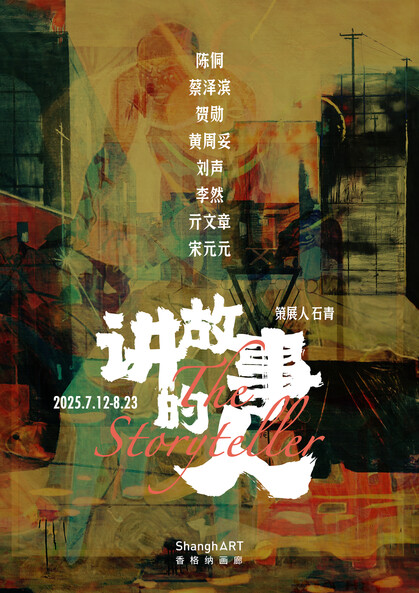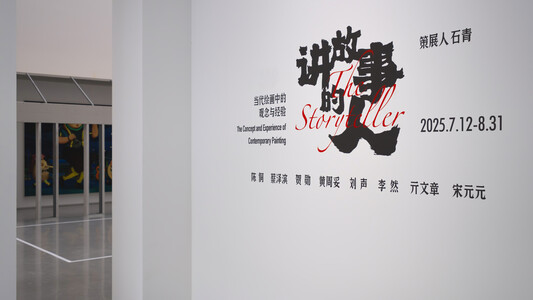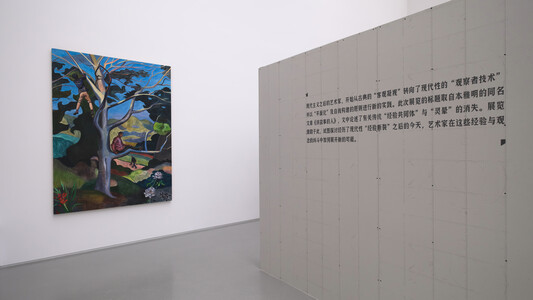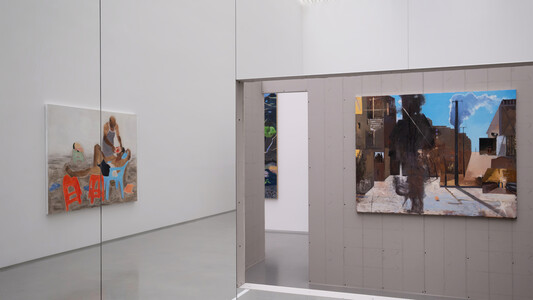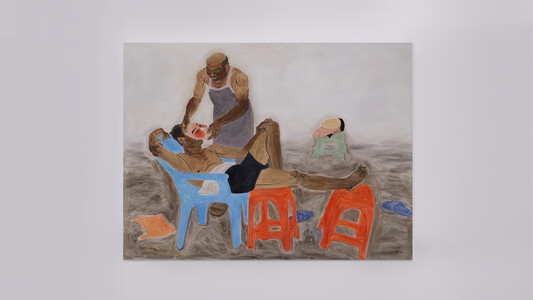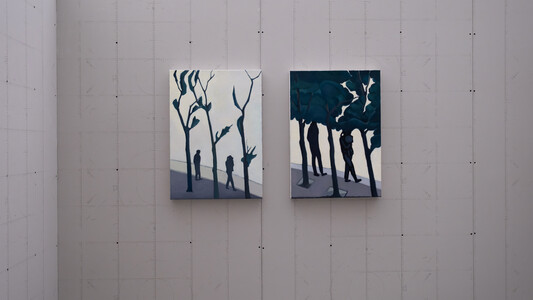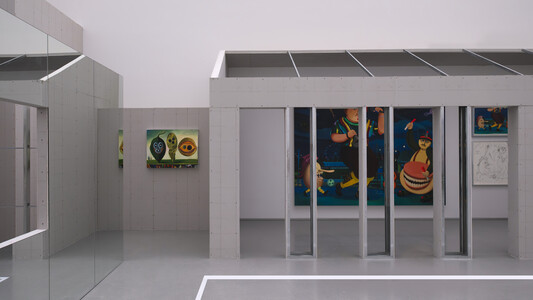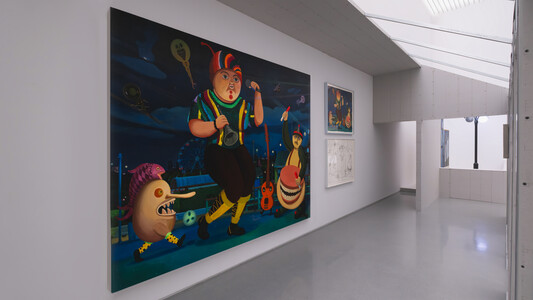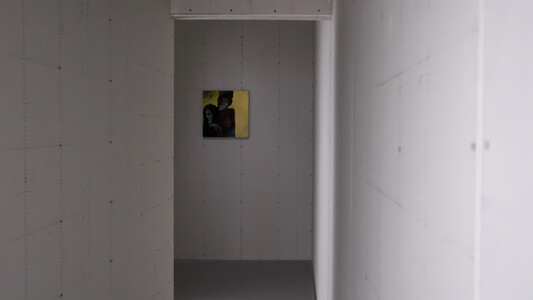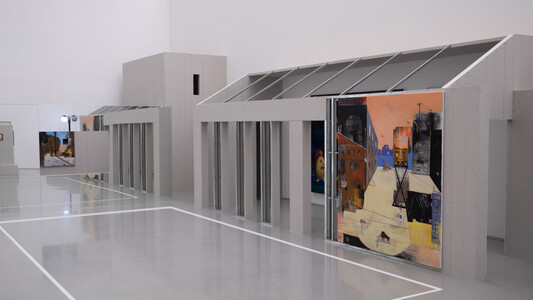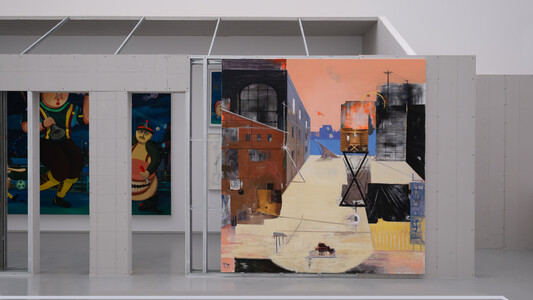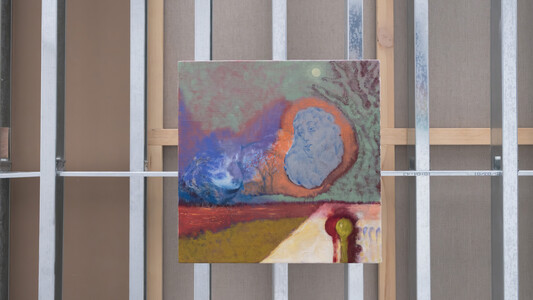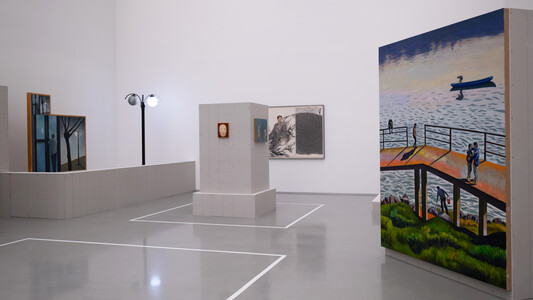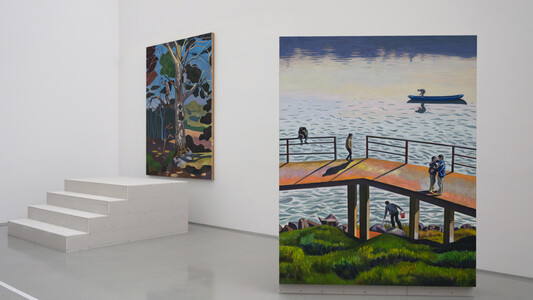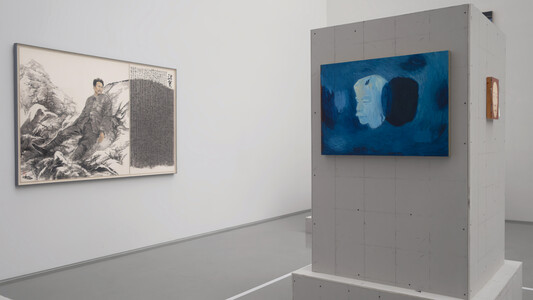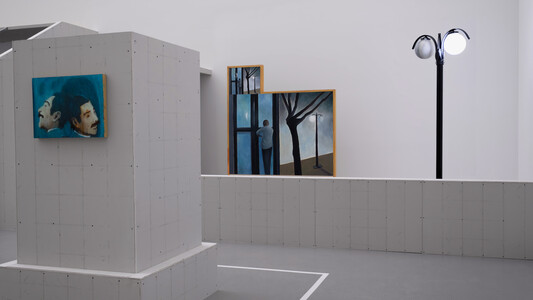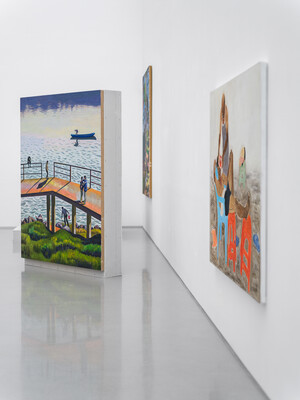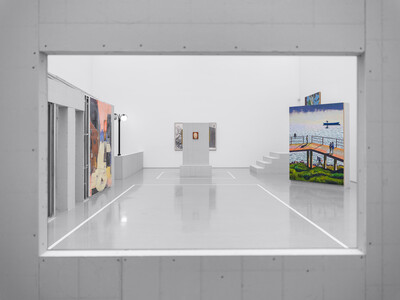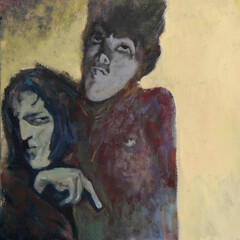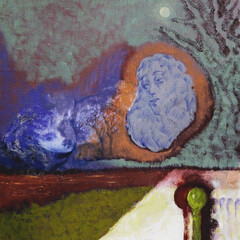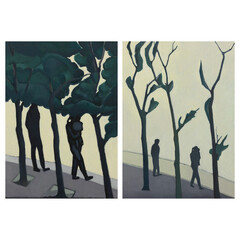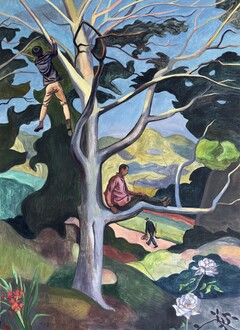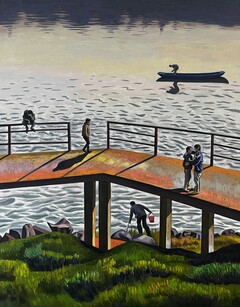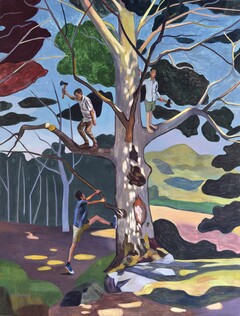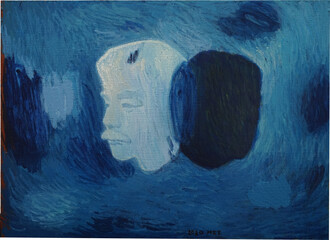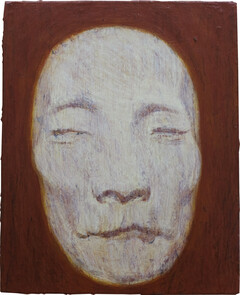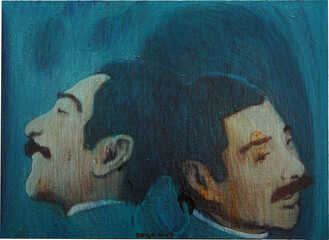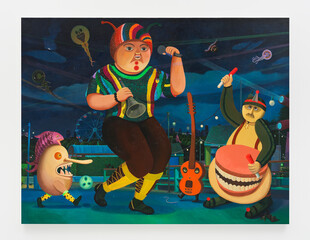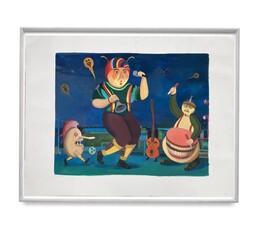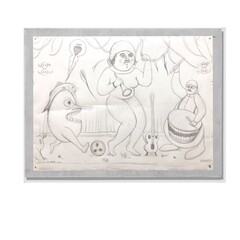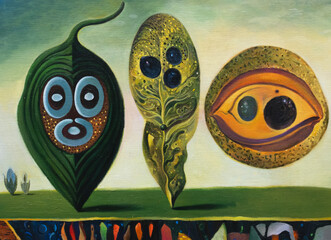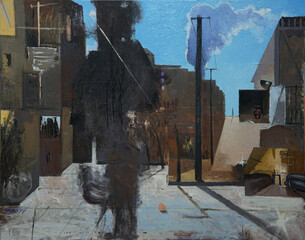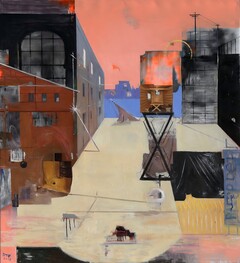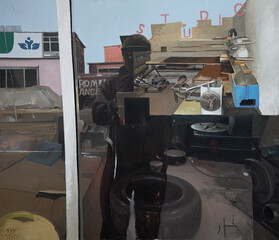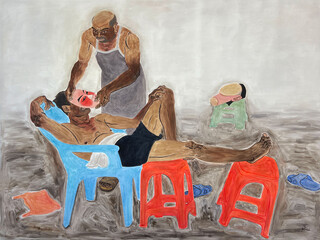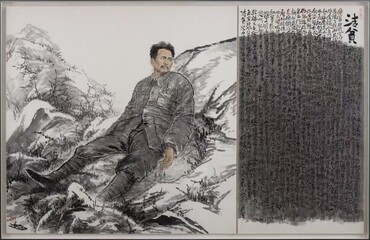Group Exhibition ShanghART Beijing, Beijing
The Storyteller: The Concept and Experience of Contemporary Painting
Curator: Shi Qing
Artists: Chen Tong, Cai Zebin, He Xun, Liu Sheng, Li Ran, Qi Wenzhang, Song Yuanyuan, Huang Zhoutuo
Opening:2025/07/12 4pm Sat.
Duration:2025/07/12 - 08/31 11:00 – 18:00 Mon. Closed
Location:261 Caochangdi, Airport Side Road, Chaoyang District, Beijing
The title of the exhibition makes it clear that it explores the narrative nature of painting. In fact, the title comes from Benjamin's essay of the same name about the disappearance of storytelling and experience since the onset of modernity. Consequently, the exhibition will engage with artists' experiences, concepts and interconnections. These situations are, of course, even more complex today: the classical vision established by perspective; the experience of modernity, in which the observer and the machine are co-moulded; and the debasement of the visual by the conceptual aftermath of the linguistic turn — just a few examples. It is irrefutable that all of these are extant in various manifestations for every creator in the present age. In other words, the narrative surrounding the ontology of painting, the history of hybrid visual media and technology, and the knowledge system derived from the theory of modernity have all become outlets for contemporary artistic expression. The choice of painting as the medium for this exhibition is also based on the historical fact that painting has long been associated with visual experience and knowledge. While new media visualisation is currently dominant in art, the ghostly dark box model established by 'observer technology' still lingers in the modern experience. The repeated ignoring of the visual rupture of modernity that took place over a hundred years ago demonstrates the incompleteness of these modern concepts, as well as the serious neglect of the resilience of memory, experience, and the 'halo of the spirit' in the fold of history. Moreover, the repeated ignoring of the visual rupture of modernity that occurred over a hundred years ago demonstrates the serious neglect of the resilience of memory, experience and the 'halo of the spirit' in the fold of history.
When discussing experience, Benjamin invokes the popular novels of his time, implying that knowledge and "technical rationality" function as conceptual precursors in art. This shift also draws subsequent paintings closer to a certain "literary" quality. As early as the Late Ming period, painting had already begun merging with the abstract structural "creation" seen in the literati works of Dong Qichang and others. While few today would endorse a reductionist view of painting as mere reality-mapping, the resurgence of bodily and sensory engagement still contends with the transformative pressures of conceptual frameworks and knowledge systems. The recent emphasis on "research" in artistic discourse may well be an extension of this tendency, further solidifying the contours of "totalism." For artists dedicated to memory and lived experience, it remains uncertain whether this development is a blessing or a curse.
More Pictures:
The Storyteller|ARTFORUM Review
ShanghART Beijing | "The Storyteller: The Concept and Experience of Contemporary Painting" Installation View|ShanghART WeChat

